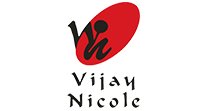
Elements of Organisational Behaviour
Publication Date
Available in all formats
Publisher: Vijay Nicole Imprints Private Limited
ISBN: 9789393161864
ISBN: 9788182094123
Price: INR 250.00
Table of contents
- Cover
- Halftitle Page
- Title Page
- Copyright Page
- Contents at a Glance
- Contents
- Preface
- Chapter 1. Introduction to Organisational Behaviour
- Meaning and Definition of OB
- Nature or Characteristics of OB
- Objectives of OB
- Scope/Elements Dimensions of OB
- Disciplines Contributing to OB
- Contribution of Other Disciplines to OB
- Challenges Confronting OB
- Approaches to OB
- Evolution of OB
- Fundamental Concepts of OB
- Challenges of OB
- Review Questions
- Chapter 2. Individual Behaviour
- Nature of Human
- Determinants of Individual Behaviour
- Review Questions
- Chapter 3. Personality
- Definitions
- Characteristics of Personality
- Dimensions of Personality
- Determinants of Personality
- Personality Traits Influencing Organizational Behaviour
- Theories of Personality
- Theories of Personality Development
- Measurement of Personality
- Types of Personality
- Applications of Personality Concept in Organisation
- Review Questions
- Chapter 4. Perception
- Meaning
- Characteristics
- Factors Influencing the Selection of Stimuli
- Important Principles in the Organisation of Stimuli
- Factors Involved in Interpretation of Stimuli
- Application of Perception Concept
- Review Questions
- Chapter 5. Attitudes
- Definitions
- Characteristics of Attitude
- Types of Attitude
- Formation of Attitude
- Effect or Implications of Attitude
- Measurement of Attitude
- Functions of Attitude
- Review Questions
- Chapter 6. Values
- Concept
- Characteristics of Values
- Types of Values
- Formation of Values
- Review Questions
- Chapter 7. Learning
- Meaning
- Definitions
- Features of Learning
- Factors Determining Learning
- Steps in Learning
- Theories of Learning
- Review Questions
- Chapter 8. Motivation and Morale
- Motivation
- Types of Motivation
- Nature of Motivation
- Significance of Motivation
- Theories of Motivation
- Morale
- Determinants of Morale
- Review Questions
- Chapter 9. Motivation Application
- Incentives
- Job Design
- Alternative Work Schedule Options
- Review Questions
- Motivation
- Chapter 10. Emotions and Emotional Intelligence
- Types of Emotions
- Differences Between Affect, Emotion and Mood
- Dimensions of Mood
- Theories of Emotion
- Expression of Emotions
- External Constraints in Emotions
- Emotional Intelligence (EI)
- Benefits or Significance of EQ
- Applications of EI in Organisation
- Steps Involved in Developing EI
- Emotions Management
- Practising Emotional Quality Management (EQM)
- Review Questions
- Chapter 11. Interpersonal Behaviour/Transaction Analysis
- Transaction Analysis
- Components of Transactional Analysis (TA)
- Analysis of Self Awareness
- Analysing the Ego States
- Analysis of Transactions
- Script Analysis
- Stroking
- Games Analysis
- Review Questions
- Chapter 12. Group Behaviour and Dynamics
- Group: Meaning
- Group Dynamics
- Reasons for Joining a Group
- Theories of Group Formation
- Types of Groups
- Characteristics of Formal Organisation
- Informal Organisation
- Stages of Group Development
- Group Norms
- Group Cohesiveness
- Role Behaviour
- Group Status
- Group Process
- Group Synergy
- Social Loafing
- Group Composition
- Group Decision Making
- Intergroup Behaviour
- Review Questions
- Chapter 13. Organisational Conflict
- Conflict
- Features of Conflict
- Sources of Conflict
- Different Stages of Conflict
- Types of Conflict
- Level of Conflict
- Negotiation
- Bargaining Strategies
- Situational Variables in Negotiation
- Issues in Negotiation
- Review Questions
- Chapter 14. Power and Politics
- Sources of Power
- Power – Authority Differences
- Politics
- Organisational Politics
- Response to Organizational Politics
- Defensive Behaviour
- Impression Management (IM)
- Review Questions
- Chapter 15. Organisation and Organisation Structure
- Introduction
- Process of Designing the organisation
- Principles of Organisation
- Theories of Organisation
- Organisation Structure
- Review Questions
- Chapter 16. Types of Organisation
- Formal and Informal Organisation
- Types of Organisation
- Review Questions
- Chapter 17. Organisational Culture
- Concept of Organisational Culture
- Definitions
- Features of Organisational Culture
- Essential Characteristics of Organizational Culture
- Types of Culture
- Functions of Culture
- Barriers of Culture
- Impact of Culture
- Stages in Socialisation Process
- Methods of Learning New Culture or Methods of Imparting Culture
- Types of Socialization
- Process of Socialisation of Employees
- Changing Organisational Culture
- Sustaining the Culture
- Spirituality and Organizational Culture
- Review Questions
- Chapter 18. Organisational Climate
- Features of Organisational Climate
- Significance of Organisational Climate
- Dimensions of OC
- Determinants of OC
- Impact of Organisational Climate
- Review Questions
- Chapter 19. Organisational Effectiveness
- Definition
- Efficiency and Effectiveness
- Approaches to Measure Effectiveness
- Factors Influencing OE
- Managerial Effectiveness
- Organisational Climate and Organisational Effectiveness
- Adaptability and Organisational Effectiveness
- Review Questions
- Chapter 20. Organisational Development
- Meaning and Definition of OD
- Features of OD
- OD Interventions
- Group Focused Interventions
- Evaluation of OD
- Limitations of OD
- Guidelines for OD or Suggestions to Make OD Effective
- Factors Influencing Choice of OD Intervention
- Review Questions
- Chapter 21. Change Management
- Introduction
- Factors Influencing Change
- Response to Change
- Resistance to Change
- Overcoming Resistance to Change (Change Management Strategies)
- Change Agents
- Review Questions
- Chapter 22. Stress Management
- Introduction
- Features of Stress
- Causes of Stress
- Consequences of Stress
- Management of Stress
- Review Questions
- Chapter 23. Counselling and Mentoring
- Counselling
- Mentoring
- Reverse Mentoring
- Coaching
- Key Terms
- Review Questions
- Mentoring
- Glossary
- Index
Biographical note
Professor
Nice

